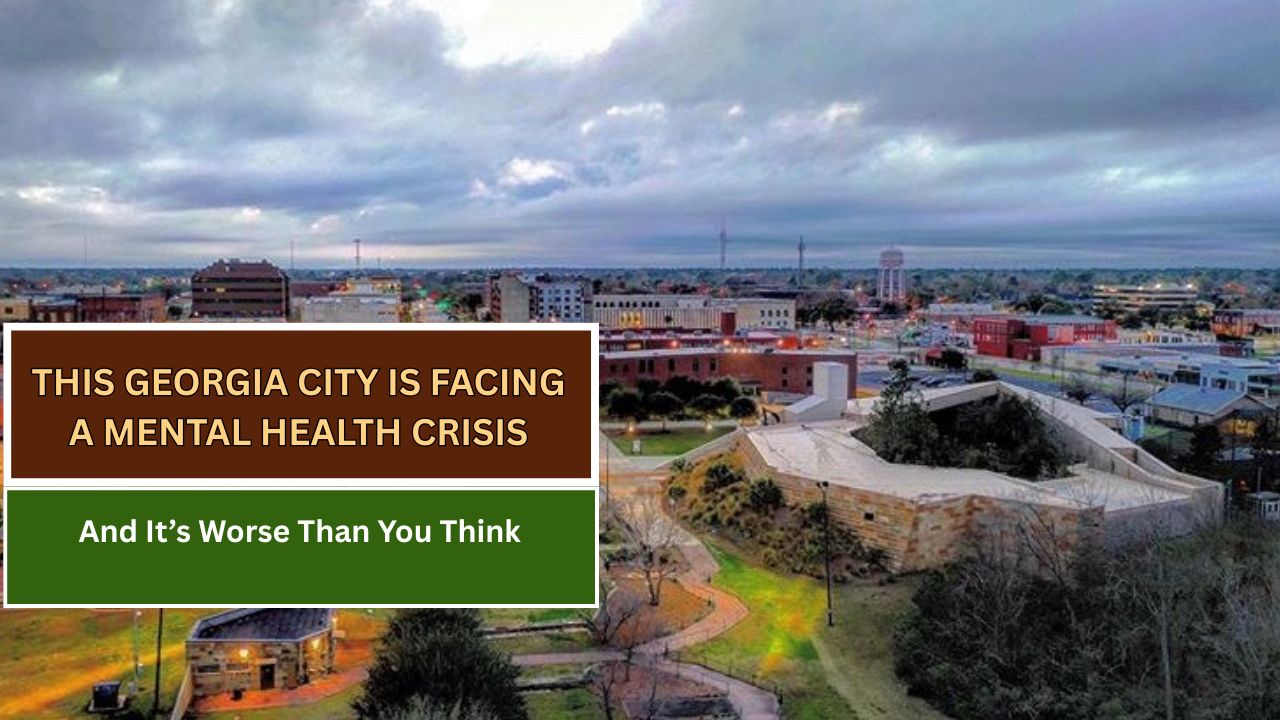Albany, a city in southwest Georgia, has increasingly drawn attention not only for its economic challenges but also for signs that it may be among the most depressed urban areas in the state. With rising mental health concerns and one of the highest poverty rates in Georgia, the city reflects a wider crisis affecting underserved communities across the United States.
A Snapshot of Albany’s Struggles
According to recent analyses from sources such as 1230 WSOK, Albany is one of the most economically and socially challenged cities in Georgia. The median household income in Albany is roughly $31,000, far below the national median of over $70,000. Approximately 33.2% of residents live below the poverty line, according to U.S. Census Bureau data.
Unemployment in the region is also significantly above the state average. Coupled with high violent crime rates, which exceed both state and national norms, Albany is facing an environment that can be deeply distressing for its residents—emotionally, financially, and psychologically.
Mental Health on the Decline Statewide
Georgia ranks among the top 10 states with the highest rates of depression. The United Health Foundation reports that 17.7% of adults in Georgia have been diagnosed with a depressive disorder (source). This puts Georgia at 7th in the nation, just behind West Virginia and Mississippi.
More troubling is the recent spike in mental health issues. According to a 2023 analysis by Metro Atlanta CEO, Georgia experienced the third-largest increase in adults reporting poor mental health between 2022 and 2023, with a 1.5% rise.
Augusta and Other Cities Also Affected
While Albany often tops the list for economic distress, Augusta, Georgia, was recently ranked one of the unhappiest cities in the United States. A study referenced by iHeart Media placed Augusta 171st out of 182 cities evaluated nationwide, based on emotional well-being, community life, job satisfaction, and health metrics.
Other small Georgia towns such as Blakely, Sylvester, and Jesup have been mentioned informally online as places struggling with declining infrastructure, population loss, and social disconnection—factors that often correlate with rising mental health issues.
Access to Care: A Statewide Crisis
Despite the growing demand for mental health services, Georgia ranks among the worst states for access to care, according to the National Alliance on Mental Illness (NAMI). Many rural and urban communities alike suffer from a shortage of licensed professionals, and the state’s mental health system is stretched thin.
In fact, the Georgia Department of Behavioral Health and Developmental Disabilities (DBHDD) has acknowledged ongoing efforts to expand community-based mental health programs. Yet the demand often exceeds available services, leaving many residents—particularly in areas like Albany—underserved.
The Human Cost
The cumulative effect of poverty, limited economic opportunity, and poor access to healthcare services can weigh heavily on a community’s spirit. Residents in Albany report feelings of hopelessness and disconnection, symptoms often linked with untreated depression.
A lack of transportation, unemployment, and crime create an environment where mental health deteriorates not because people aren’t willing to seek help—but because help is often out of reach.
Moving Forward: Hope and Resources
Despite these issues, there are signs of hope. Nonprofits, community centers, and mental health advocacy groups are working to expand access to therapy, counseling, and crisis support services across Georgia. Organizations like Georgia HOPE and national resources like MentalHealth.gov provide directories and referrals to support networks.
The federal government is also funding mental health improvements through grants under the Substance Abuse and Mental Health Services Administration (SAMHSA). These are aimed at expanding crisis stabilization services and suicide prevention programs in high-need areas.
For Albany and similar cities across Georgia, tackling depression is not just about individual treatment—it’s about lifting up communities through economic opportunity, education, and access to care.
This article has been carefully fact-checked by our editorial team to ensure accuracy and eliminate any misleading information. We are committed to maintaining the highest standards of integrity in our content.

Outside of work, he enjoys playing chess, following cricket, and writing short stories. His commitment to integrity and in-depth analysis strengthens OTE News’ mission of providing trustworthy journalism.




